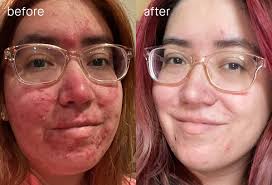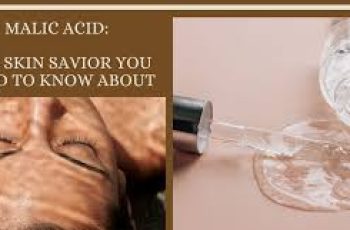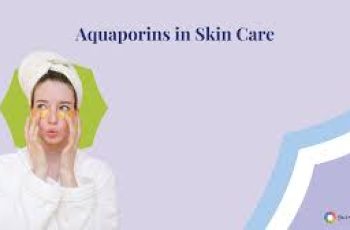How long does it take to get rid of acne?
How long it takes to get rid of acne depends upon what skin care routine you are using, how consistently you use it, and what is causing your acne. If you are doing everything right, it takes about 8 weeks to clear acne.
Acne takes much longer to get rid of than most people realize. You may get impatient and stop using your acne products before the acne medications have a chance to work. So this is my advice as a dermatologist:
Know your Baumann Skin Type
Build a routine to match your skin type
Use it consistently
Wait 4- 8 weeks before expecting improvement
Then once the acne clears, you must get rid of acne marks such as red marks and dark spots that can take months to fade. Acne scars, which are different than red marks and dark spots, will not fade on their own.
How you treat your acne will determine whether or not you develop red marks, dark spots and acne scarring- so be diligent about your acne treatments and make sure you are using the best skin care routine for your skin type.
How long does it take to get rid of acne marks?
Acne marks will not fade until you treat the underlying cause of acne.
Once the cause of acne has been eliminated it will take 8 weeks to stop breaking out and get rid of acne if you are using the best acne products to treat your skin concerns. It can take many more months for acne marks to fade.
If you have a sudden outbreak of pimples, it will take about 2 – 4 weeks for those to clear if the cause has been removed. For example, if you break out because you used a new skin care product or makeup with acne-causing ingredients, but you stop using the problem product, it can take 2-4 weeks for the pimples to clear naturally without any acne treatments.
How long to get rid of acne depends upon your skin care routine and habits and sunscreen use.
If your acne will not go away and you have tried everything, make sure that:
You are using the right skin care products for your Baumann Skin Type
You are using a custom acne routine and all the products have been chosen to work well together
You are using the skin care routine every morning and night as directed
Your retinoid serum is not expired or inactive due to exposure to light or air
You are not using products with acne causing comedogenic ingredients
You are not taking testosterone which causes acne
You are not taking Vitamins B6 or B12 which can cause acne
You do not have any hormone imbalances
If you are using the right products for your Baumann Skin Type consistently, then acne should begin to clear in 8 weeks.
Take the skin type quiz to make sure you are using the right acne skin care routine.
Take the Quiz
How long does it take for acne marks to fade?
There are 3 main types of acne marks on the skin after acne clears:
red marks
dark spots
acne scars
Many of my patients call the red acne marks scars, but they are not true scars and will go away. However, a scar may develop in the same area that the acne mark was.
How can you tell the difference between a red acne mark and a scar? A red acne mark is flat and looks pink or red but not glistening or shiny or firm. The skin over an acne scar feels firmer than normal skin or is depressed in various shapes such as ice pick marks (narrow deep round punctures) or box cars which have lagged edges. Acne scars may look lighter than the surrounding skin and may have a glistening appearance. Acne scars can also turn into keloids.
How to Get Rid of Red Marks From Acne
red acne marks can take months to fade
Red marks from acne can take months to go away. They are red because the blood vessels are enlarged to help bring nutrients to the are so you do not want to use vasoconstricting anti-redness serums or creams with hydrocortisone to clear them. In the long run, this will take more time to get rid of the red acne marks. Although I do not usually recommend it unless you have a wedding or important event, a vascular laser can help clear red marks from acne. These red marks are not acne scars. They will go away with time. If they are depressed or thick or you pick at them, they can turn into acne scars which are very hard to get rid of.
How Long to Clear Dark Spots from Acne?
dark spots can take 8 to 12 weeks to fade
Dark spots from acne are a form of hyperpigmentation that occurs from the inflammation that is characteristic of acne.
It is also called PIH, PIPA, or post inflammatory hyperpigmentation.
Acne dark spots are harder to get rid of in darker skin types.
The best way to erase dark marks from acne is with skin lightening ingredients such as tyrosinase inhibitors.
It can take 12-16 weeks for dark spots from acne to clear.
Read here how to clear skin faster and why it takes so long to clear dark spots.
Why does it take so long to fade acne marks?
Acne is a disorder of the hair follicles. Pores clog and pimples from deep down in the hair follicle.
It takes time for the hair follicles to clear and normalize.
hair follicle where acne begins
The epidermis that lines the hair follicle plays an important role in acne because of the desquamation cycle.
You can learn more about desquamation here.
The epidermal desquamation process gets messed up. This is called dyskeratinization. Basically this means the dead skin cells hold onto each other and do not flake off of the skin way they should.
This occurs for several reasons:
activation of toll like receptor 2
presence of bacteria
dysfunction of enzymes
increased oil (sebum)
dyskeratinization from over-exfoliation
It takes weeks for the desquamation cycle to normalize once you begin the right acne skin care. Then it takes about 30-45 days for all of the “messed up” epidermal keratinocytes to move to the skin’s surface and flake off of the skin.
Acne will keep recurring until the keratinization process is normal again and all of the messed up keratinocytes have been replaced. This can take 8 weeks.
How to prevent acne marks?
You cannot fade and prevent acne marks unless you stop getting pimples.
Using the right skin care EVERY day is the only way to prevent the recurrence of acne.
Keep using your regimen- even after your acne clears.
Take the quiz to find the best routing to prevent red acee marks and dark spots. Also- do not forget your sunscreen!
DQH Knowledge drop: In your 20s, your skin cell turnover decreases. (Cell turnover is a key component in keeping your skin youthful.) You know what else slows down? Your collagen production. Starting in your 20s, collagen decreases by about 1 percent per year. Should you want to prevent fine lines and wrinkles, start by eliminating behaviors that contribute to premature aging. “If it’s bad for you, it’s bad for your skin,” says dermatologist Michel Somenek.
“Cigarette smoking reduces blood flow to the skin and causes premature wrinkling and a dull skin texture. Making the repeated pursed motion to inhale can also cause smoker’s lines. Alcohol and recreational drugs are toxins for the skin that damage its cellular structure and DNA,” Somenek tells us. “The faster you eliminate vices while you are young, the better chance your skin and body have to recuperate.” Also, adopting an anti-aging routine in your 20s is key. After all, the best offense is a good defense. We spoke to Somenek and experts Joshua Ross and Audrey Kunin to find out more.
Keep reading for the best anti-aging products for your 20s, according to skincare professionals.
Sunscreen
“We all know that the sun is the number one cause of skin aging and starting the prevention in your 20s is very important,” Ross says. “The majority of your sun damage won’t start to appear until you’re in your 30s, so don’t wait until you see it surface or you’ll be behind the curve. Stay ahead of it with a good-quality zinc-based sunscreen worn daily.”
Farmacy Green Defense Daily Mineral Sunscreen
An invisible sunscreen with SPF 30, plus botanical extracts meant to protect skin with tons of antioxidants. Bonus: It’s clean and fine to use under makeup.
Bareminerals Complexion Rescue™ Tinted Moisturizer Broad Spectrum SPF 30
Although we recommend you use your SPF and moisturizer separately, we also understand moments when you don’t have time or energy for that extra step. For those times, this bareMinerals moisturizer is a great thing to have on hand.
Vitamin C Serum
“A great introduction to anti-aging is to start with a vitamin C serum in your morning skincare routine,” Ross says. “It’s a powerful antioxidant that will neutralize free radicals and brighten the skin.” He adds that it’s a great way to counteract the effects of the sun’s harmful rays, which, as previously mentioned, are among the biggest causes of premature aging.
Drunk Elephant C-Firma™ Vitamin C Day Serum
The Drunk Elephant C-Firma is a lightweight serum that promises to give skin a glow by combining the brightening powers of vitamin C with ferulic acid, l-ascorbic acid, and vitamin E. The included sodium hyaluronate is meant to replace hydration loss, so you shouldn’t have to deal with any irritation.
Sunday Riley C.E.O. Rapid Flash Brightening Serum
This potent serum is jam-packed with vitamin C (15 percent, to be exact), which means it’s a potential superstar at both brightening skin and dousing it in antioxidants.
Peptides
Using peptides on your skin has many benefits, says Somenek. “The skin barrier is what defends the body against pollution, UV rays, bacteria, and toxins. It can be damaged by several everyday factors. Using topical peptides aids in building a stronger barrier,” he says. “Peptides comprise elastic fibers, which are a type of protein. These fibers help to make skin appear taut and firm. Peptides can also help repair damaged skin, relieve inflammation, and even out skin tone. Some peptides can kill acne-causing bacteria that is common in 20-somethings.”
Kunin agrees, saying, “Peptides are an excellent entry point for supporting collagen.” She recommends looking for face and eye treatments that contain these collagen-boosting powerhouses.
Charlotte Tilbury Magic Eye Rescue Cream
This Charlotte Tilbury super-emollient eye cream has a base of coconut oil and shea butter (read: it’s incredibly hydrating). Botanicals plus peptides are meant to help reduce dark circles and boost collagen, respectively.
This creamy moisturizer serves up potent collagen-boosting peptides and pycnogenol, and antioxidant-rich vitamin C. “Instead of sitting on top of the skin, peptides penetrate the outer layer so they go deep. The ‘signals’ they send tell the cells to produce elastin and collagen, which are needed for youthful-looking skin,” explains Somenek.
At-Home Peel Pads
Remember that skin cell turnover fiasco we talked about earlier? One way to help support it is by exfoliating. “Exfoliation is important to help keep skin fresh and luminous,” Kunin says. She recommends using at-home peel pads as an easy and effective way to exfoliate.
“The goal in your 20s is to fight the slowing pace of cell turnover. It is wise to use products that gently exfoliate, yet still remove oil and other impurities. Products that have Alpha Hydroxy Acids (AHA) or Beta Hydroxy Acids (BHA) are a good choice.”
According to Somenek, you should only exfoliate two to three times a week. “People of all ages are guilty of over-exfoliating and that can be too much of a good thing,” he says.
Dermadoctor Kakadu C Intensive Vitamin C Peel Pad
A few swipes of this Derma Doctor powerful peel pad promise to leave your skin glowing and smooth, thanks to the seven (yes, seven) types of chemical exfoliants, including AHA and BHA. It also contains vitamin C via Kakadu plum extract for added brightening and antioxidant protection.
KEY INGREDIENTS Kakadu plum extract is sourced from the Kakadu plum, a fruit grown in northern Australia. It contains vitamin C, which restores the skin’s natural barrier, increases collagen production, and soothes irritation.
Dr. Dennis Gross Skincare Alpha Beta® Universal Daily Peel Pads
These are the gold standard of peel pads, with a cult following and over 900 five-star reviews on Sephora. They’re easy to use and contain a blend of anti-aging exfoliating acids.
Emollient Night Cream
“In your 20s, you need to start upping the hydration in your skincare routine. You may have been cautious of over-moisturizing because of acne in your teens, but as you enter your 20s, your skin transitions and becomes drier,” Ross says. “I recommend an emollient night cream added into your evening skincare regimen.”
“Twenty-somethings need to make sure that they are not using creams that will clog their pores and cause excess oil production,” says Somenek. Opt for non-comedogenic products.
Cerave Skin Renewing Night Cream
One great choice is the CeraVe Skin Renewing Night Cream, which is a non-comedogenic night cream that leaves skin soft and glowy. It combines the moisturizing powers of ceramides and hyaluronic acid.
RoC Retinol Correxion Max Hydration Creme
“The best night cream ingredients contain retinol, benzoyl peroxide, and/or salicylic acid or hyaluronic acid. The goal is to moisturize, yet remove excess oil,” says Somenek. This Roc Retinol Correxion cream fits the bill as it contains both hyaluronic acid and retinol so it promises to moisturize while also being non-comedogenic.



